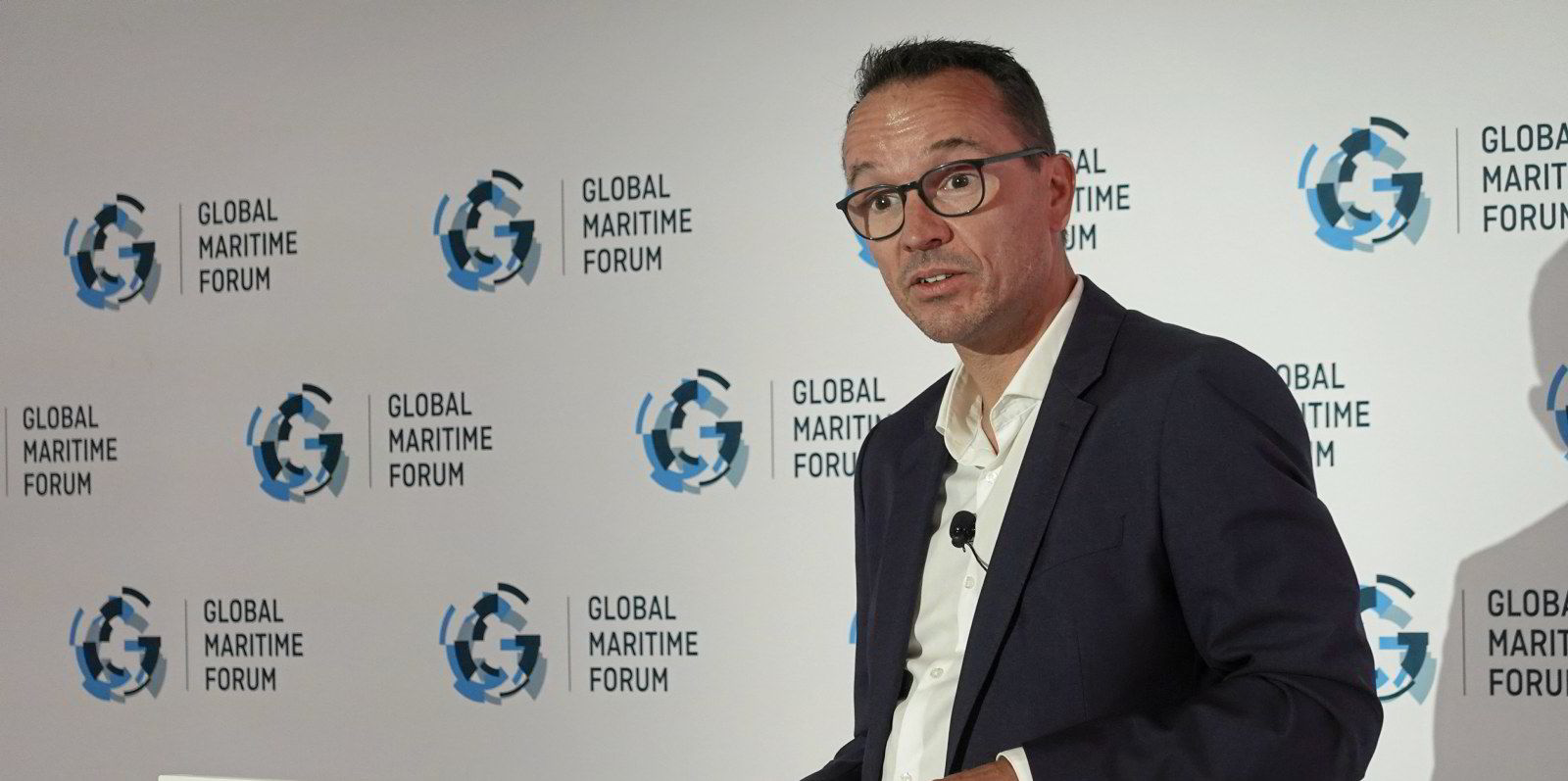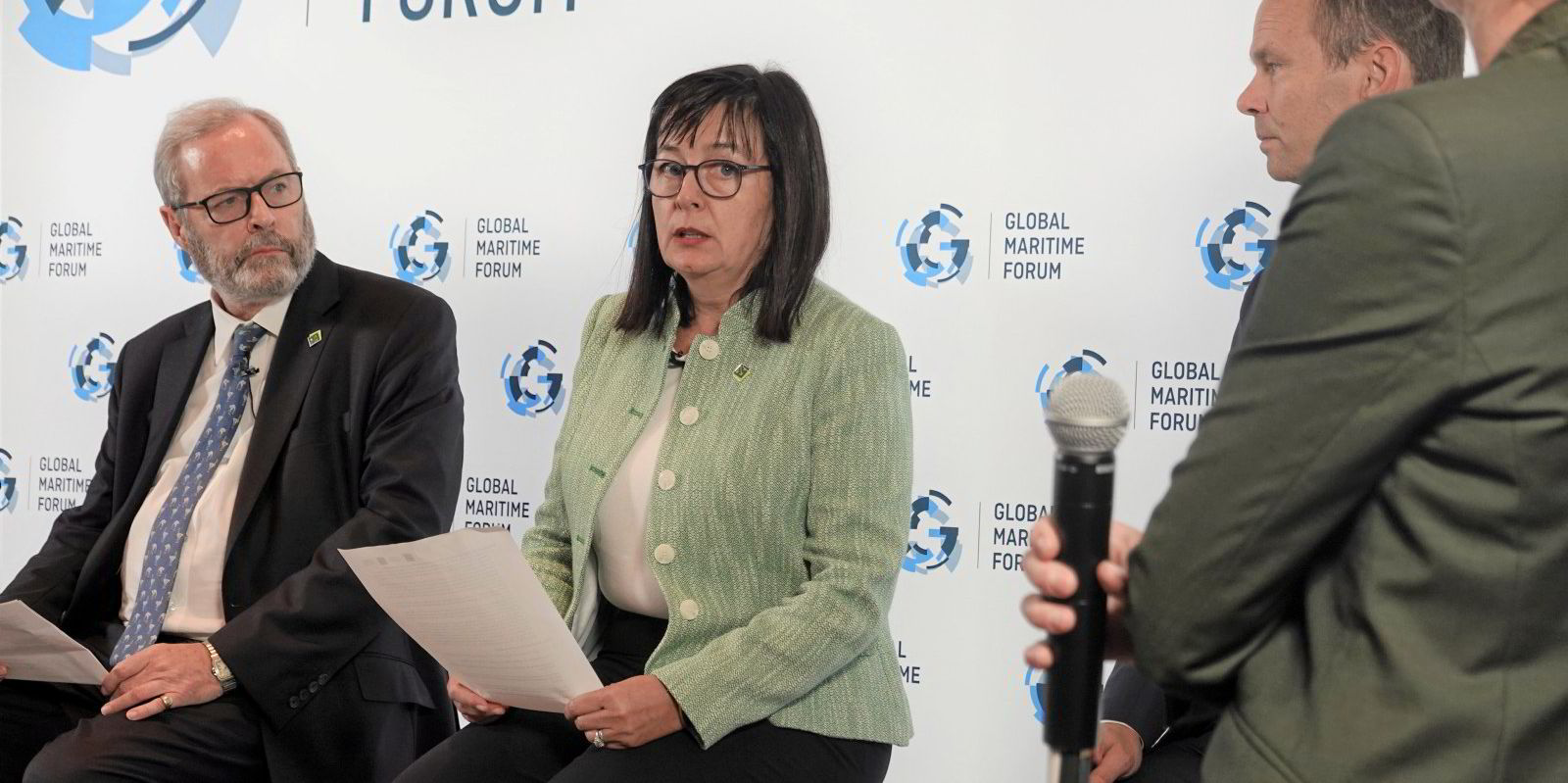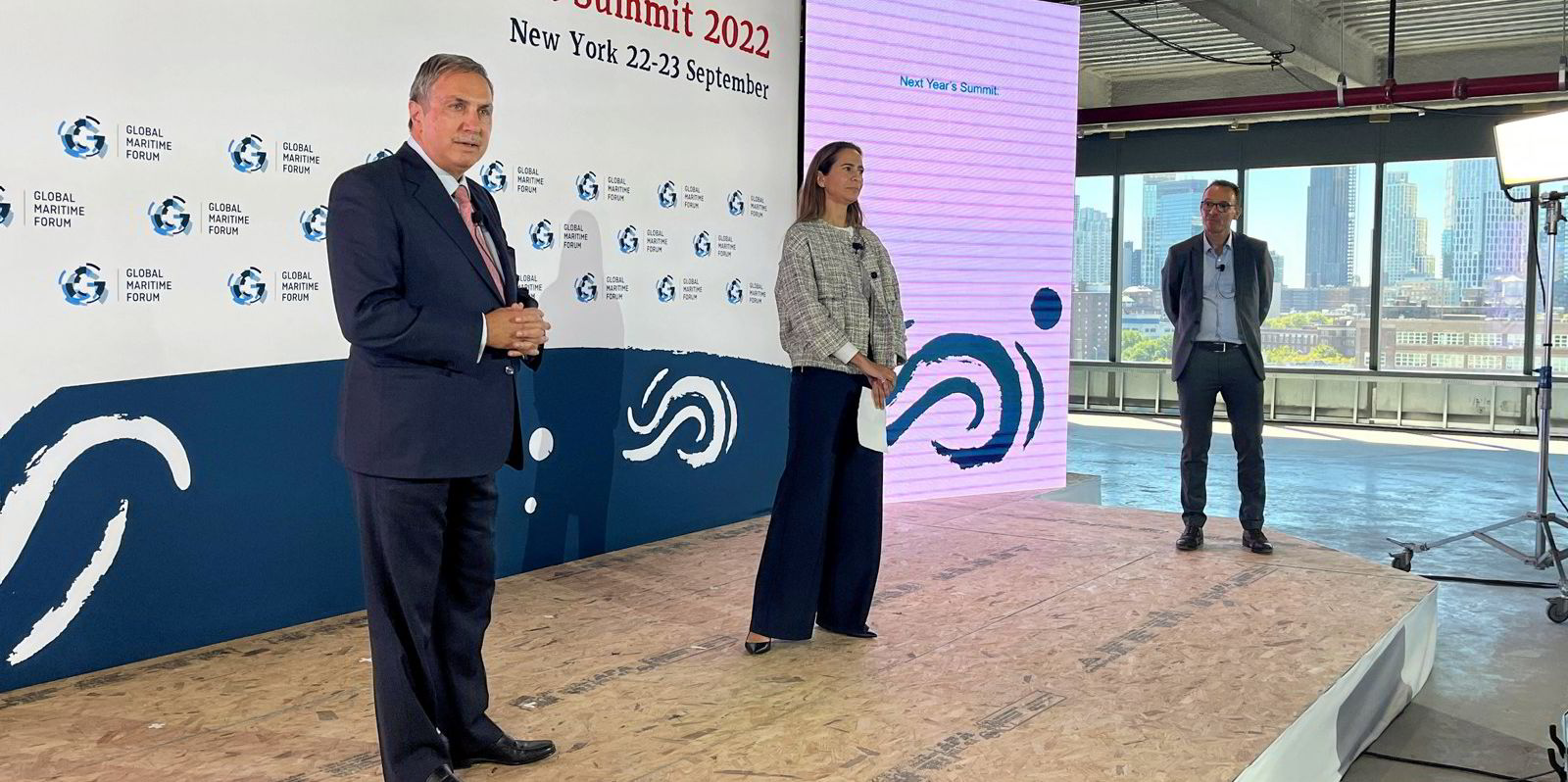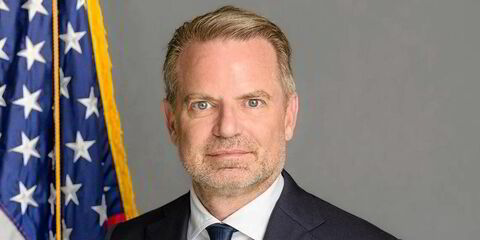Many shipping leaders see a carbon levy as the simplest way to slash the industry’s greenhouse gas emissions.
But amid calls from developing countries for an “equitable transition”, how to distribute any funds collected is a key puzzle that will have to be solved as the International Maritime Organization grapples with its next moves to cut carbon in the months ahead, industry stakeholders said at the recent Global Maritime Forum annual summit.
Jan Dieleman, the Cargill Ocean Transportation president who is chairman of the nonprofit forum that aims to tackle shipping’s challenges, said everyone in shipping wants to see a simple and fair scheme put in place as the IMO considers market-based measures to close the price gap between conventional fuels and cleaner alternatives.
“At the end of the day, everybody would like to have one scheme that is clear and predictable, because it makes our industry a lot more investable,” he told TradeWinds on the sidelines of the summit. “If you know what the pathway is going to be, it’s a lot easier to start working on some of these fuels.”
He expressed support for comments by BW Group chairman Andreas Sohmen-Pao that a fixed fuel levy may be the easier way to do that, rather than an emissions trading scheme.
But then the issue of what to do with the revenue that is collected gets thornier.
“If you collect money, how do you govern how you spend it? I think that’s still a big topic. And that might be the biggest disagreement, actually,” he said, noting that it raises questions of equity for the developing world.
“There’s a lot of complicated questions, in my mind, on how you actually distribute those funds back into the maritime industry.”
Developing nations
An equitable energy transition has been a key ask by developing countries at the IMO, where nations that are most impacted by climate change are also those with the greatest disadvantage in the technology race towards zero-carbon technologies.
Marshall Islands ambassador Albon Ishoda said that shipping stakeholders have different concepts of equitable transition, including how seafarers can be equitably brought along with the shift to zero-carbon technologies and how developing countries, like small island states, are impacted.

He said it is important to engage with states that may put up obstacles to agreements at the IMO.
“Sometimes, and I’m sorry to be very frank, I hear within this sector people saying that we need to do this, we need to do that,” he said as he discussed the findings of the policy portion of the summit’s problem-solving sessions. “But sometimes we forget that governments actually make those votes in [the] IMO.”
Tristan Smith, an associate professor in shipping and energy at London’s UCL Energy Institute, urged summit participants to be confident and compassionate as shipping works towards decarbonisation targets.
Taking shipping’s carbon to zero by 2050 means slashing greenhouse gases by 90% 10 years earlier for shipping as a whole, but for the Global Maritime Forum community it means effectively getting to zero by 2040.
“And that is a pretty big challenge, but I don’t think it’s one that you need to be afraid of. And I think if you communicate fear about that challenge, what you will then get is a failure to inspire the IMO,” Smith said.
Getting there means growing clean fuels production by 10% per year for nearly two decades.
“That isn’t a number which is terrifying,” he said.
He pointed out that as the Global Maritime Forum met in New York, government and energy industry leaders were at the Global Clean Energy Action Forum in Pittsburgh, discussing investments in green hydrogen, for which they will need buyers.
Empathy comes in when it comes to considering the circumstances that governments are facing as they are asked to undergo major changes to meet carbon-cutting targets.
“If the equity issue is not front and central, then we won’t have those governments’ support,” he said. “We’re asking them to embrace radical change. We need to listen to what they’re terrified about and factor it into the solution.”
Read more
- Poseidon players seek course — or separate courses — to more ambitious carbon target
- Global Maritime Forum reveals location of next annual summit
- Biden aims to make green shipping a highlight of next global climate meet
- ‘Long runway’: Ocean Network Express chief worries IMO could take years to lift carbon cost
- IKEA swears off using offsets in achieving net-zero fuel goal





